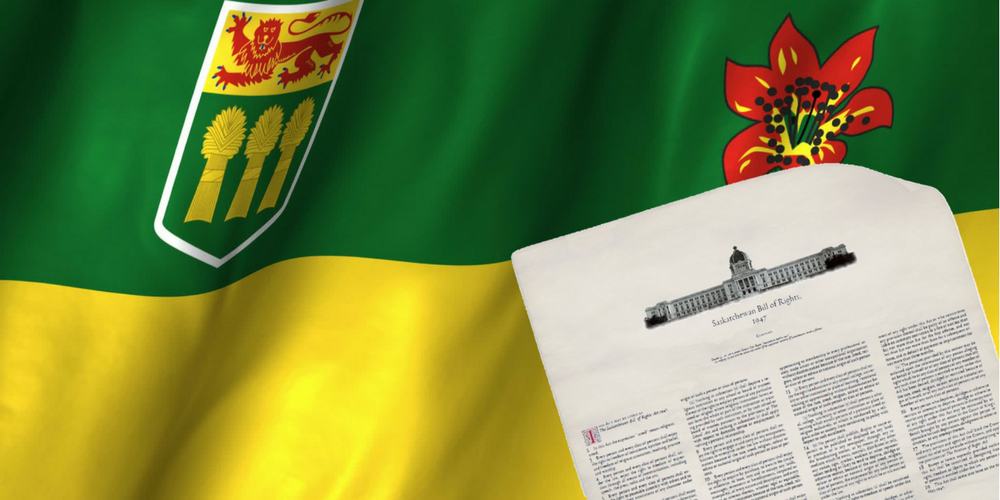70th Anniversary of the Saskatchewan Bill of Rights Act
December 8, 2017
“I would suggest, Mr. Speaker, that this is perhaps the most important bill that ever came before this house … in importance, it will rank with the British North America Act.”
Seventy years ago, this is how Attorney General J.W. Corman introduced the Saskatchewan Bill of Rights Act to our provincial legislature. The bill was the first legislation of its kind in North America and, in fact, the world. Under its aegis, people of Saskatchewan were provided with inalienable democratic freedoms like the freedom of expression and association, freedom from arbitrary imprisonment, and the right to vote. The bill also stated that — regardless of race, colour, creed, religion or nationality — it was the right of every person in Saskatchewan to:
- engage in any occupation or enterprise,
- be a member of any professional or trade association,
- rent or purchase any property,
- receive education in schools and universities, and
- be given service in public places such as restaurants and hotels.
It is important to take a moment to consider the conditions and context in which a bill like this was born. Seventy year ago. Two years after the Second World War; one year before the General Assembly of the United Nations adopted the Universal Declaration of Human Rights. At the time, the Saskatchewan Bill of Rights Act was groundbreaking. Revolutionary, even.
Canada during the 1940s was a much different place than it is now. It was a place where everything from denial of employment to refusal to provide service in a restaurant on religious or racial grounds was legal across the country. Racism, prejudice, and discrimination in the 40’s were commonplace and widespread.
But the wheels of change were in motion.
The atrocities of the Holocaust brought about a stark realization in the international community. No longer would it be enough to respect fundamental rights. No. It became imperative that the rights of all members of the human family be defined and, more importantly, protected.
Saskatchewan Premier Tommy Douglas was a staunch supporter of this idea. His desire for more a tolerant, accepting society was unwavering. His commitment to a multicultural Canada, an undeniably essential step in preparing the grounds for the Saskatchewan Bill of Rights Act.
But it was another person — Morris Shumiatcher — who was a pivotal figure behind drafting and implementing the bill.
A Jewish man from Calgary, Shumiatcher was no stranger to discrimination. He witnessed it firsthand from a very young age and understood his experience was by no means an isolated incident. There were problems in society that needed to be solved.
So after the CCF was elected in 1944, Premier Douglas invited Shumiatcher to become Saskatchewan’s Law Officer to the Attorney General. He happily accepted and immediately set about drafting a plethora of statutes, including the Saskatchewan Bill of Rights Act which he hoped would “lay the foundation for a better society — not only in Saskatchewan but throughout Canada.”
With the help of the Canadian Jewish Congress and the Commission of Law and Legislation of the American Jewish Congress, the draft was finalized. Then, in 1947, after many heated debates the bill was passed into law by unanimous vote.
Saskatchewan’s march to wide-ranging human rights did not end there:
- In the 1950s, Saskatchewan expanded equality rights with the Equal Pay Act, 1952 (which prohibited employers from paying women less than men), The Fair Employment Practices Act, and The Fair Accommodation Practices Act (which expanded the prohibitions against discriminations in employment.)
- In 1972, the province took another step in the protection of rights by establishing the Saskatchewan Human Rights Commission.
- In 1979, The Saskatchewan Human Rights Code came into effect.
- In 1989, mental disabilities were added to the Code as prohibited grounds.
- 1993 saw sexual orientation, as well as, family status and receipt of public assistance added as grounds.
- In 2014, gender identity became a prohibited ground.
Over time, changes have been made to The Saskatchewan Human Rights Code to better protect the individual dignity, fundamental freedoms and equal rights of Saskatchewan citizens. These changes build on and continue to elevate a tradition of human rights protection that began 70 years ago.
